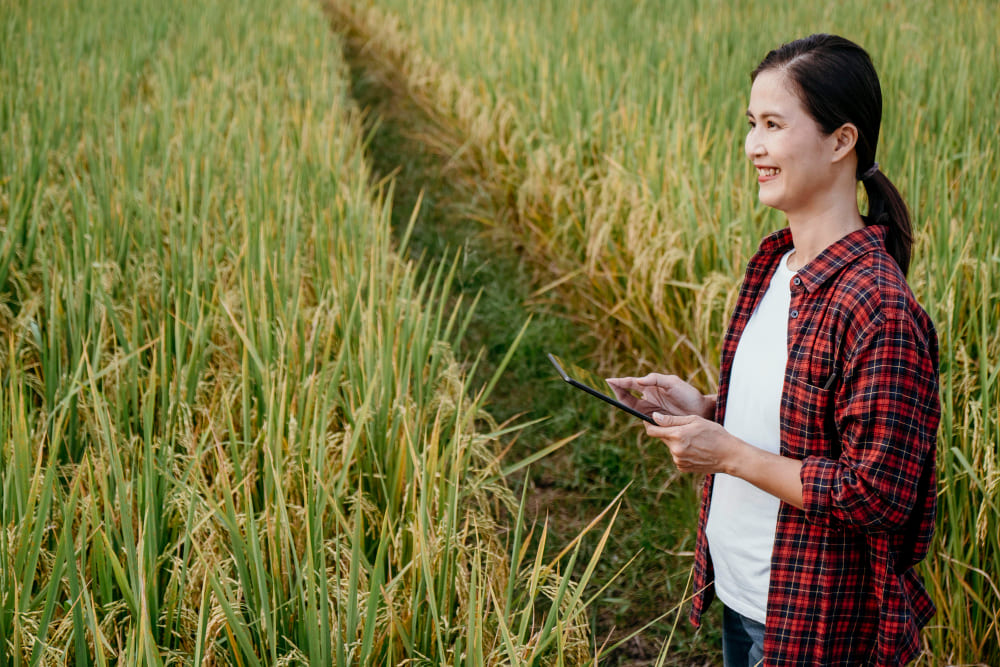Benchmarking: ProTerra Standard V5 and Japan Good Agricultural Practices

ProTerra has developed a benchmark of the ProTerra Standard V5 (PT V5) against the 2022 version of the Japan Good Agricultural Practices Standard (JGAP), including the SA General Regulations Plus Sustainable Agriculture.
Japan GAP Foundation (JGF) develops and administers the JGAP scheme, aiming to contribute to the sustainable development of Japanese agriculture and food-related industries.
The JGAP requirements include a set of robust management system criteria that act in the best interests of consumers (food safety), production infrastructure (environmental conservation, livestock hygiene, and animal welfare) and workers (occupational safety, respect for human rights).
The JGAP certification programme covers agricultural (grains, fruits and vegetable and tea). Mixing with non-certified material is not accepted within the Standard.
ProTerra Foundation, on the other hand, is a not-for-profit organisation that advances and promotes sustainability at all levels of the feed and food production system, in all parts of the globe. It is committed to full transparency and traceability throughout the supply chain, as well as to corporate social responsibility. The possible detrimental impact of agricultural activities on ecosystems and biodiversity is at the heart of the ProTerra Standards (ProTerra V5 and PT MRV).
The ProTerra Standard, created in 2006 has a long-standing history and experience in promoting sustainability in the food and feed supply chain and segregated non-GMO materials. The ProTerra Standard emphasises the following key issues:
- Human rights and good labour practices, such as workplace safety, equal opportunities, and a particular focus on preventing child and forced labour;
- Good agricultural practices, regarding soil fertility, water management and continuous efforts to reduce the use of fertilisers and pesticides;
- Deforestation, Biodiversity, High Conservation Values, and a special focus on rigorous Non-GMO requirements.
The benchmarking exercise
The benchmarking exercise was carried out during the second semester of 2025, against the requirements for grains, fruits and vegetable and tea production (ProTerra level 1 – farm activity). The requirements of ProTerra V5 and JGAP have much in common and, for all three commodities, a good alignment was obtained when understanding how JGAP-certified organisations meet ProTerra requirements.
Full alignment has been found between the two standards in relation to ProTerra Principle 6- Pollution and Waste Management and with Principle 8 – Greenhouse Gases and Energy Management. This was followed by Principle 1 – Management System, Compliance with Law and the ProTerra Standard which achieved an average alignment of 94%. Practice with less alignment were found in relation to Principle 4 – Biodiversity Conservation, Effective Environmental Management and Environmental Services (43% in average) and Principle 3 – Responsible Relations with Workers and Community (42% in average).
JGAP has a very robust set of requirements associated with management systems and a very good record and evidence-gathering strategy.
A few of the ProTerra requirements were, however, not met, meaning that for a full recognition by ProTerra of a JGAP-certified farm, additional requirements would have to be implemented and further verified during a ProTerra audit of a JGAP-certified operation. Table 1 lists these additional requirements. Please note that, for a ProTerra certification, 80% of the ProTerra indicators must be met, including all CORE indicators.
One important difference is the cut-off date for deforestation. JGAP aligns with SAI framework, with no new cultivated land can be created after December 31, 2015 in primary forests, wetlands, or protected areas and that the new cultivated land must not impact those areas, whereas ProTerra V5 requires compliance with a sticker cutoff date: no conversion of land after 31 December 2008, in particular the following: a) natural forest; b) native grasslands; c) wetlands; d) swamps; e) peatlands; f) savannahs, g) steep slopes; h) floodplains; i) riparian vegetation. Therefore, only farms that met the ProTerra cut-off date would be eligible for certification under ProTerra V5.
ProTerra Foundation embraces the mutual recognition of sustainability standards and believes that synergies help reducing costs of standard implementation and certification while reducing audit burden. In addition, best sustainability practices are shared across sectors and countries, with possibilities of the opening of new markets.
For more information, please contact us at info@proterrafoundation.org